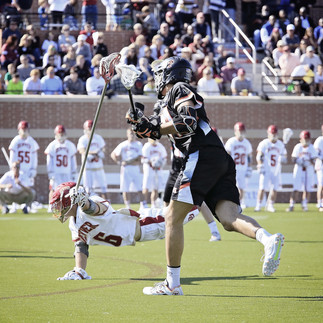Unleashing Athletic Excellence through Effective Time Management
- Joel Molina

- Jun 8, 2023
- 3 min read
Time management plays a critical role in the lives of athletes, as it directly impacts their ability to train effectively, achieve peak performance, and reach their goals. Athletes face unique challenges when it comes to managing their time, balancing rigorous training schedules, competitions, recovery, and other commitments. To excel in their chosen sport, athletes must develop practical time management habits that optimize their training, enhance their performance, and maintain a healthy life balance.
This guide will explore a range of proven time management strategies tailored specifically for athletes. Whether you're a professional athlete, a competitive sports enthusiast, or someone passionate about maximizing your athletic potential, these practical habits will help you maximize your training time and propel your performance to new heights. By implementing these strategies, you can prioritize effectively, eliminate time-wasting activities, and create a structured framework that optimizes your athletic development.
From setting clear training goals and prioritizing key activities to effective planning, delegation, and incorporating essential rest and recovery, each habit enhances your time management skills as an athlete. Additionally, we'll delve into time blocking, communication with teammates and coaches, and the importance of regular evaluation and adjustment to refine your approach over time.
Time is a precious resource, and managing it wisely can be the key to unlocking your true athletic potential. So let's dive in and discover how to take control of your time, optimize your training, and embark on a path toward peak performance and personal excellence as an athlete.
Set Clear Training Goals: Begin by setting clear and specific goals for your athletic pursuits. Define what you want to achieve, whether improving performance, achieving specific milestones, or reaching new personal bests. Clear goals will help you prioritize and allocate your training time effectively.
Prioritize Training Activities: Learn to prioritize your training activities based on their importance and impact on your performance. Focus on high-priority exercises, skill development, and conditioning that align with your goals. Avoid getting sidetracked by less impactful or non-essential activities.
Plan and Schedule Training Sessions: Develop the habit of planning your training sessions. Use a training log or digital tools to schedule specific workouts, practice sessions, and recovery periods. A structured plan helps you stay organized and allows you to allocate time for crucial training activities.
Break Training into Manageable Sessions: Training sessions can be demanding and overwhelming, both physically and mentally. Break down your training into manageable sessions or drills. This approach allows you to track progress, maintain focus, and stay motivated as you achieve small milestones on your way to bigger goals.
Eliminate Time-Wasting Activities: Identify activities that consume your time without directly contributing to your athletic development. This could include excessive social media use, excessive downtime between exercises, or distractions during training. Minimize or eliminate these time wasters to create more focused and efficient training sessions.
Practice time Blocking: Allocate specific time blocks for different aspects of your training, such as strength and conditioning, skill practice, mental training, and recovery. Dedicating each block solely to that specific training area allows you to focus and avoid multitasking, resulting in more effective training.
Learn to Prioritize Rest and Recovery: Recovery is a crucial aspect of athletic performance. Make sure to allocate sufficient time for rest, sleep, and active recovery activities like stretching and foam rolling. Prioritizing and incorporating adequate rest and recovery into your schedule will optimize your training results.
Communicate and Coordinate: For athletes involved in team sports, effective time management includes coordinating with teammates and coaches. Communicate clearly about practice times, game schedules, and team obligations. Maintaining good communication ensures everyone is on the same page and helps you manage your time efficiently.
Seek Support and Delegate When Possible: Don't hesitate to seek support from coaches, trainers, or teammates. Delegate tasks or responsibilities when appropriate, such as coordinating equipment, scheduling logistics, or managing administrative tasks. This allows you to focus more on your training and performance.
Regularly Evaluate and Adjust: Regularly evaluate your training progress and reflect on how you manage your time as an athlete. Identify areas for improvement, such as balancing different training components or adjusting your schedule to optimize performance. Continually learn from your experiences and make necessary adjustments to refine your time management skills as an athlete.
Remember, developing effective time management habits as an athlete takes practice and dedication. By implementing these habits consistently, you can optimize your training, improve performance, and make the most of your athletic pursuits.










Comments